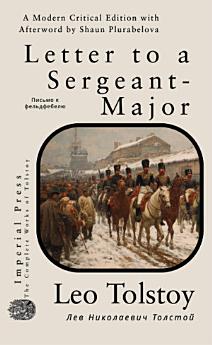Letter to a Sergeant-Major
O ovoj e-knjizi
The novella unfolds as a dialogue between Tolstoy and the field officer, a conversation that grapples with the inherent contradictions between religious dogma and the realities of war and suffering. Tolstoy, grappling with his own spiritual doubts, challenges the officer’s unquestioning faith, questioning the efficacy of belief in the face of human cruelty and the senselessness of violence. He explores the tension between divine purpose and human agency, questioning whether suffering serves any ultimate cosmic plan. The narrative is not a definitive answer, but rather an honest and deeply felt exploration of uncertainty, highlighting the individual’s struggle to find meaning and solace in the face of profound disillusionment. This work resonates with philosophical inquiries into the problem of evil and the nature of religious faith, echoing the concerns of thinkers like Søren Kierkegaard who explored the paradoxes of belief and the subjective nature of truth.
Letter to a Field Officer stands as a significant work within Tolstoy’s early philosophical development, moving beyond simple moralizing towards a more introspective and existential exploration of the human condition. The novella’s epistolary form allows for a deeply personal and vulnerable engagement with complex philosophical questions, fostering a sense of intimacy and authenticity. It reveals a critical turning point in Tolstoy's life and thought, foreshadowing his later rejection of institutional religion and his embrace of a more radical, non-dogmatic spirituality. Its enduring impact lies in its honest portrayal of spiritual doubt and the enduring human quest for meaning in a world marked by suffering and uncertainty.










